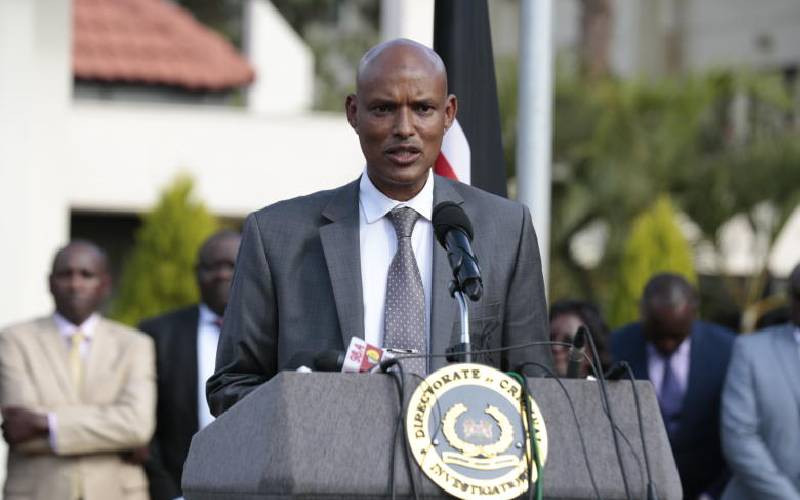
The Directorate of Criminal Investigations (DCI) is probing what it has described as alleged forged results of last year's presidential election, days after the opposition claimed that a whistle-blower had handed them "authentic" results of the election.
In a letter to the Independent Electoral and Boundaries Commission (IEBC) CEO Marjan Hussein Marjan dated January 25, Director of Criminal Investigations Mohamed Amin wants the commission to furnish it with certified copies of result declaration forms that would aid the investigation.